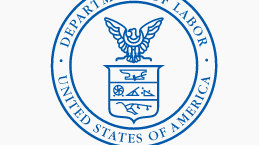Enforcement and Tax Changes For Paid Sick Leave

The U.S. Treasury Department (“Treasury”), Internal Revenue Service (“IRS”), and the U.S. Department of Labor (“Labor”) have provided guidance on the enforcement of the paid sick leave, and the tax credits available to employers for complying with the Coronavirus Relief Act passed March 18, 2020.
Paid sick leave is effective April 1, 2020. Please post the poster found here at each job site, with the other required employment posters.
Tax Credits and Refunds
All employers who are providing paid sick leave under the Coronavirus Relief Act should speak with their tax advisor about the tax credits available. The following is not intended as tax advice.
In order to speed relief to companies whose cash flow may be impacted by compliance with the new paid sick leave policies, the IRS is allowing companies who have made sick leave payments to employees to offset those amounts against the withheld income taxes that must usually be deposited with the IRS quarterly. Further guidance regarding the offsets will be coming next week.
The IRS will also have a program available to send checks to employers within 2 weeks, if the amount of paid sick leave paid to employees is greater than the amount of federal taxes withheld. Again, more guidance on this program will be available next week.
Delayed Enforcement of Paid Sick Leave
Labor has also stated that enforcement of the paid sick leave requirements will not begin until after April 17, provided that employers make a good faith effort to comply with the requirements. That means that the employer remedies violations, including by “making employees whole” (most likely by paying them any paid sick leave that was not paid), the violations were not “willful” meaning the employer either knew about the violations or recklessly disregarded the need to comply, and Labor receives a written commitment from the employer to comply in the future.
Labor takes the position that employers should have the funds to comply with the paid sick leave requirements, since the tax credits and refunds should operate relatively quickly (see above).
Guidance Regarding Exemptions for Employers with Under 50 Employees
The regulations for this exemption are still forthcoming. Labor does say that the company should document the reasons why providing paid sick leave and child-care related leave would jeopardize the business as a going concern. We will continue to monitor for updates regarding this exemption.
